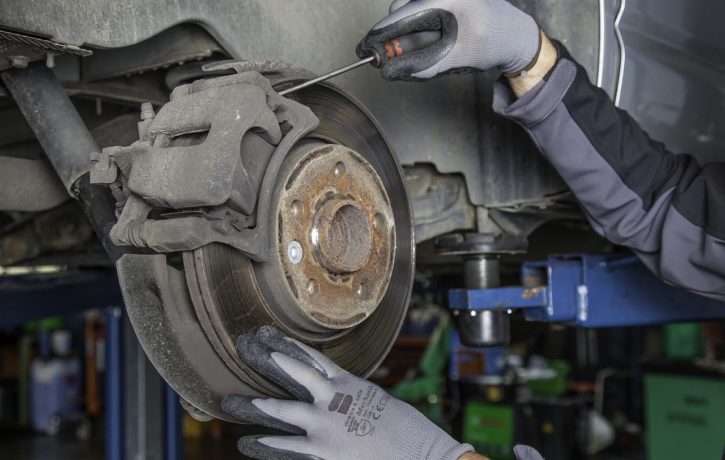For those with limited knowledge of how an engine works, knowing what could be going wrong when things don’t seem right is stressful and sometimes, scary. Whether an engine isn’t starting, is making odd noises or isn’t performing properly, it could be time for an engine repair or a part replacement, we’ve compiled some of the most common questions asked across the industry to help you find the answers you need.
Why Isn’t My Engine Starting?
If your engine isn’t starting, this could be for a number of reasons including the battery, issues with the fuel or ignition or even damaged or corroded cables and pumps. If the battery is flat, you should still hear a clicking sound, however fuel or ignition issues usually make a ‘crank’ sound, but the engine won’t go on to start up. If you’re unsure on which, getting in touch with a qualified mechanic is the best way to determine if the issue is worse than a discharged battery.
Why Does My Car Keep Stalling?
While stalling can often be down to user error if your engine seems to be stalling randomly or in the middle of the driving, this could be a serious safety hazard and a problem that needs to be fixed. Stalling can be caused by issues with the fuel line, filters or spark plugs in most cases, but issues outside of the engine could be causing it too. This is another issue worth having checked by a mechanic, as breakdowns or stalling in the middle of a road could be extremely dangerous.
What Does Engine Oil Do?
Any car owner has likely heard that engine oil is important to a vehicle and that you need to check it’s level and quality regularly – this is because the oil is designed to lubricate the engine and reduce friction, protecting the engine against wear and tear. It also works to break down any debris to protect from damage, can cool the engine and ultimately protect your vehicle and keep it running at the highest performance. Dirty oil can cause clogging or sludge build up, and so should be replaced every 5,000 – 7,500 miles depending on your vehicle or oil.
Do I Need To Change The Oil?
If your engine oil has been changed relatively recently, you may not need to change it any time soon, however, it’s not unheard of for engine oil to need changing sooner than expected. You should keep an eye out for any changes in the level, the colour or the consistency, and consider a change if any of these appear abnormal. Some cars also have oil replacement warnings, which you should always pay attention to to ensure that you are keeping everything in smooth working order, and safe to drive.
I Think There’s Water In My Engine, What Do I Do?
If you’ve driven in heavy rainstorms or high waters lately, there may be a chance that there is water in your engine. This can cause damage to piston rods and ultimately make your engine unusable. If you suspect that there may be water in the engine, it’s vital to have this checked by a qualified mechanic before you drive your car again. If left unrepaired or unchecked, water can reach the spark plugs and ultimately stop them from being useable.
Should I Replace Or Repair My Engine?
In most cases, problems with your engine can be fixed by repairing the issue at fault, however, there are some cases where the damage may be severe and an engine replacement is required. Your best course of action, in this case, is to speak to a mechanic in order to determine the next steps for your engine and whatever issues you’ve been having with the vehicle. You might find that something that seems dire is simple, but there is also the chance that something seemingly simple is highly dangerous and needs to be fixed as soon as possible.
Why Is My Engine Coolant Leaking?
If you’ve noticed your engine coolant leaking, this could be caused by a number of things but most commonly are caused by damaged radiator caps, hoses, the radiator itself and, of course, the coolant reservoir. These are considered ‘external’ leaks. Internal leaks aren’t often noticeable as they don’t tend to form pools on the ground. If you suspect you have an internal leak, however, this is most commonly due to a leaky or faulty head gasket.
How Often Should I Replace My Spark Plugs?
The life span of your spark plugs will differ depending on the plug that you use, but most spark plugs tend to last around 30,000 miles before needing to be replaced. If you’re unsure, you should check your owner’s manual to determine the right time frame, as well as considering the nature of your vehicle – if it’s high performance, spark plugs can wear out sooner, whereas other cars may come with long-life spark plugs which will last upwards of 60,000 – 150,000 miles.
How Often Should I Replace My Air Filter?
The air filters in your engine and in the cabin should be replaced relatively regularly to ensure that the vehicle remains clean of contaminants and other blockages or issues. This is another detail you can find in the owner’s manual, but typically you should change the engine air filter around every 15-30,000 miles depending on the conditions you drive in.
For more information about engine repairs, or to book in for a diagnostics check, get in touch with a member of our team, today.

